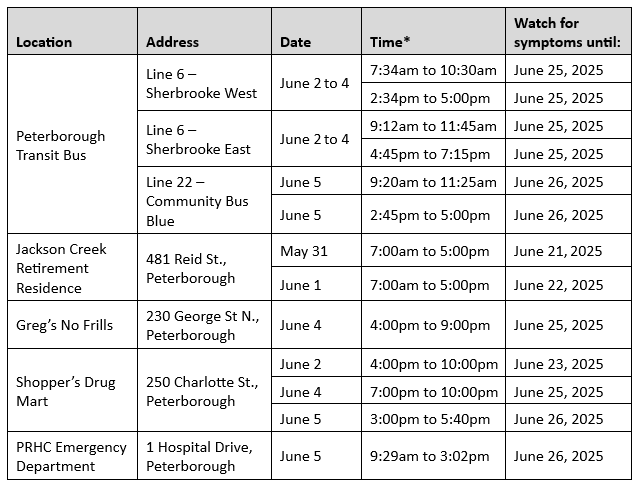Peterborough and Surrounding Area Under Special Air Quality Statement; Risks Expected to Rise Overnight
/The Haliburton Kawartha Pine Ridge District Health Unit and Peterborough Public Health (PPH) have reported a Special Air Quality Statement as issued by Environment Canada on Wednesday afternoon.
Photo by David Tuan Bui.
Current Air Quality Health Index (AQHI) levels in Haliburton are within the moderate (4-6) range but are expected to increase overnight. Despite being low risk, the AQHI in Kawartha Lakes, Peterborough and Northumberland are expected to rise to moderate throughout the evening and into tomorrow according to PPH.
Reports of smoke from wildfires in the Prairies are moving through the region, resulting in poor air quality. PPH says your health can be impacted even at low or moderate levels and sometimes without a noticeable smell.
If an extreme heat event coincides with poor air quality, residents are advised to prioritize keeping cool.
Common symptoms of smoke exposure include:
Sore and watery eyes
Runny nose and sinus irritation
Scratchy throat and mild coughing
Headaches
Some populations face greater health risks when exposed to poor air quality. This includes, but is not limited to, seniors, pregnant individuals, infants and young children, people who work outdoors, people with pre-existing medical conditions (particularly lung disease like asthma, COPD, or cardiovascular disease), and those in strenuous outdoor activity.
The following is the Air Quality Health Index:
Low Risk (1–3): Ideal conditions for outdoor activities for everyone.
Moderate Risk (4–6): Most people can continue outdoor activities, but those with heart or breathing problems should monitor for symptoms.
High Risk (7–10): Consider reducing or rescheduling strenuous outdoor activities, especially if you experience symptoms like coughing or throat irritation.
Very High Risk (10+): Everyone should avoid strenuous outdoor activity. Those at higher risk should stay indoors and limit exposure.
PPH suggests doing the following in case of air quality statements:
Check the AQHI forecast daily
Receive smog and air quality alerts directly to your email
Create a clean air space at home by keeping windows and doors closed
Use an air purifier with a HEPA filter in your home, if possible
Monitor your symptoms and adjust your activities as needed
Check in on others, especially those in the at-risk population
Tools to help you check in during extreme heat
If you are included in the at-risk population, consult your primary health care provider about additional ways to protect your health when air quality is poor.














